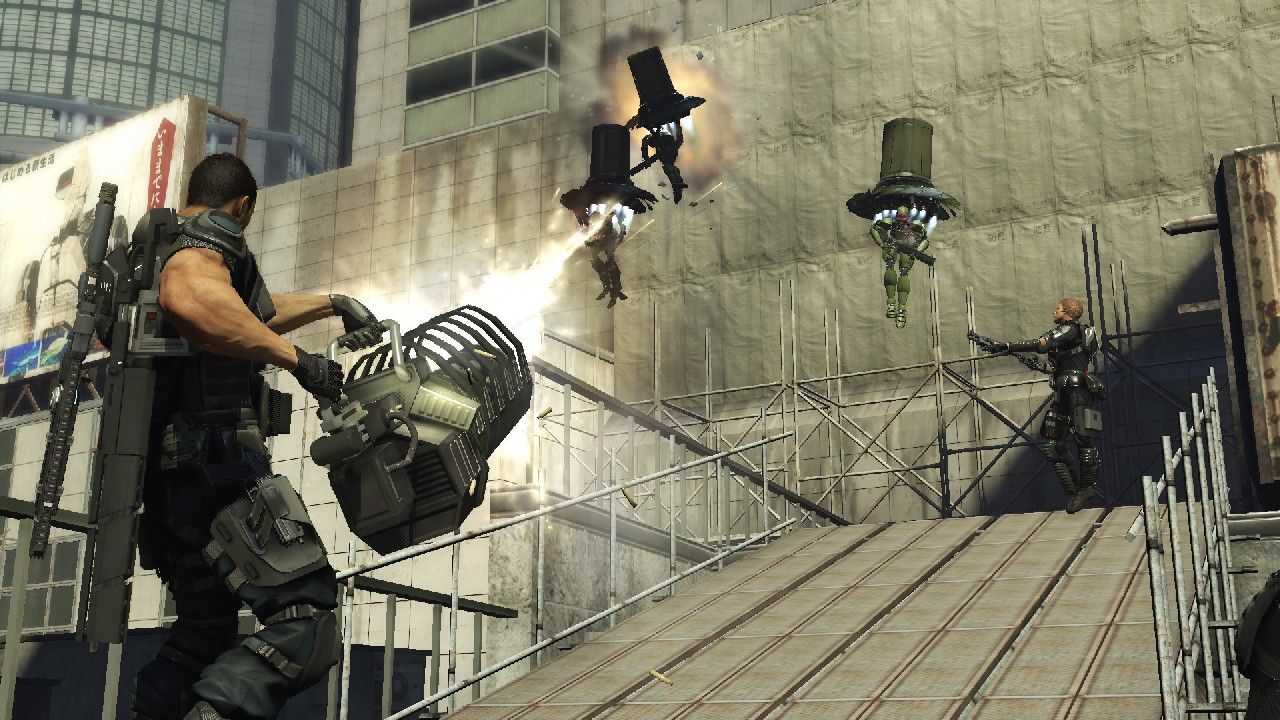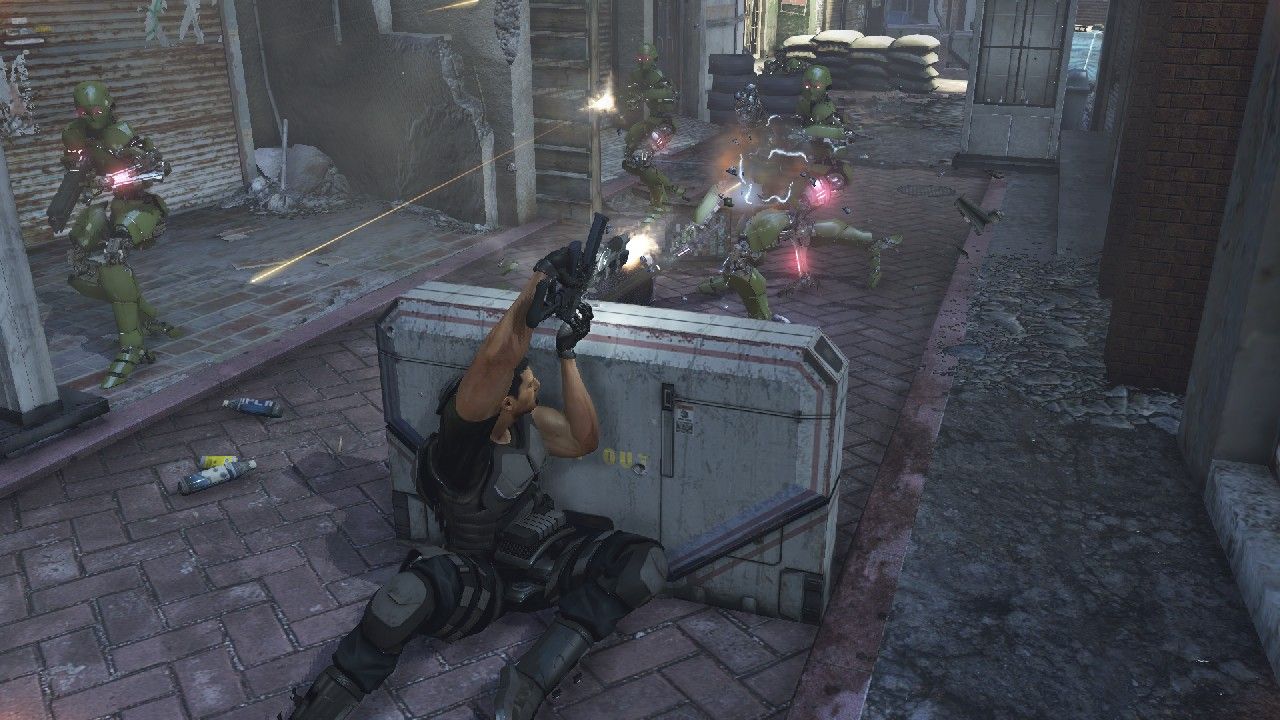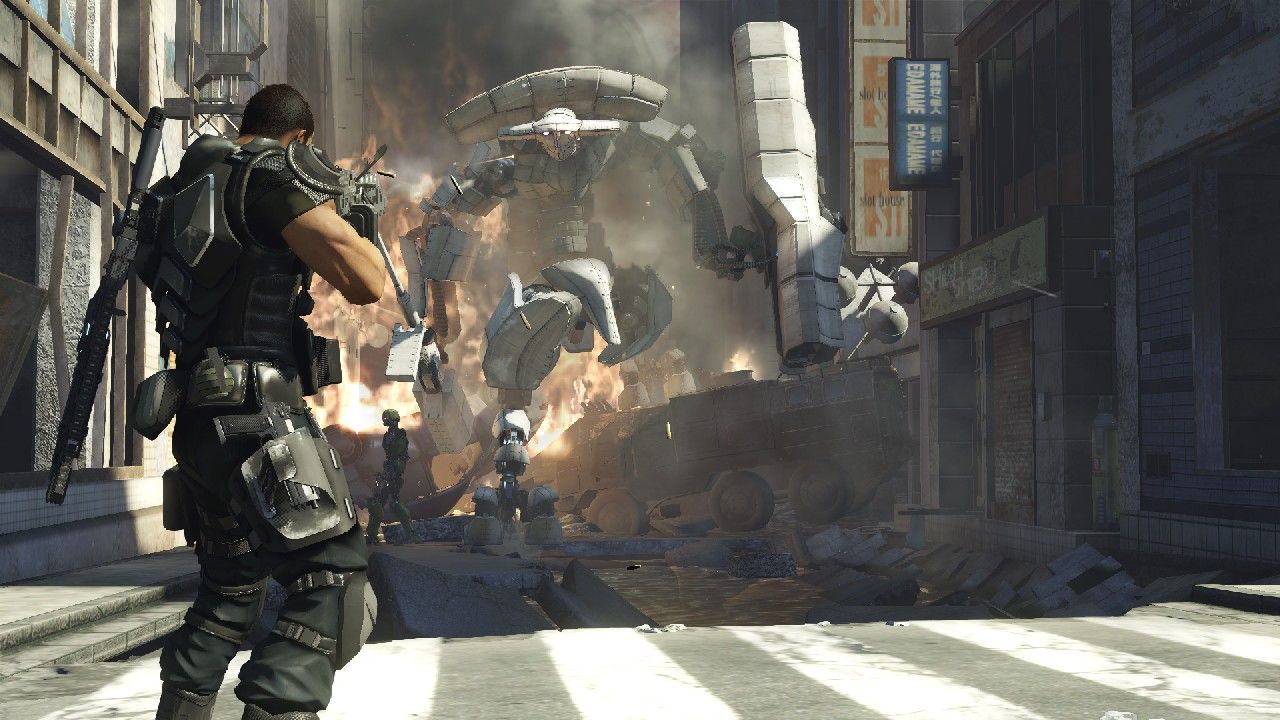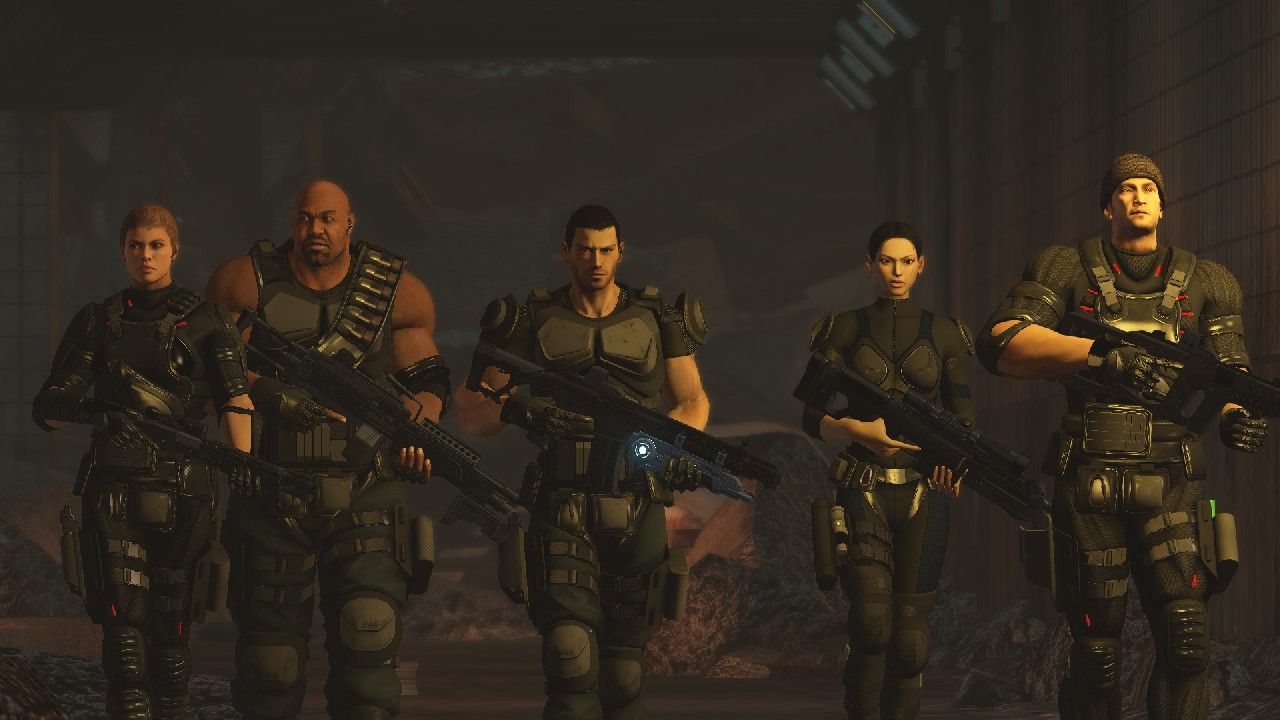Binary Domain Review
Posted by
FeverDog
on
Binary Domain is game that very few people saw coming, in a lot of different ways. An eastern-developed shooter with solid mechanics, a rich world, an excellent writing team, and a unique concept. Yet, somehow, the game is unable to rise above average. To state this review simply, Binary Domain is an example of how a game can get almost everything right and trip at the finish line.
In the world of Binary Domain, the near future paints a picture of the international politics of robotics. Two corporations, Bergen in North America, Amada in Japan, are both manufacturers of robotics for consumer and industrial use. A treaty restricting them from building any robots that look like humans or are created to mimic them in any way binds the two companies. Thankfully neither company nor any third party ever creates any robotic human facsimile in any way shape or form, or at least no one does until the very beginning of the game.

It should be no spoiler when I say the writing in this game is very good, great even, thanks to it being brought to us by the team who wrote the Yakuza series. The characters are well written, the one-liners are clever and funny, the exposition, while often long-winded, is also usually welcome and still bearable at its worst. The writing itself has very little to criticize. The handling of the writing, however, is that of an overly excited producer who just figured out that narrative can improve the intensity of any given dramatic scene or gunfight, and vigorously doused the game inside said narrative until he discovered that there was a reason no one ever made triple-stuff Oreos. The cutscenes get insanely long at some points, and while they’re still enjoyable cutscenes, no game can make it unscathed out of that particular criticism.

What’s interesting, however, is how well Binary Domain acts as a thesis against the idea of cutscenes. These are perfect cutscenes, Hollywood level production quality, to a lesser extend quality of writing, great cinematography, and they even manage to discipline themselves away from using quick-time events. They are still, however, not a replacement for gameplay. Cutscenes act primarily as a bridge between gameplay segments, and when a cutscene lasts too long, the player is given two options, to grip the controller, waiting the long haul for it to end, refusing themselves immersion into the story or scene; or they put the controller down to enjoy the cutscene and then switch back to playing the game, taken out of ‘cutscene mode’ for lack of a better term.
The bottom line is that long-running cutscenes are a flawed concept, no matter how well the cutscenes are executed. The game as a whole is dragged down as a consequence. Otherwise, looking past the over-inundation of cinematics, the story is still clever and packs dramatic heft.
The gameplay itself is standard Gears of War cover-shooting fare with tactical overtones. While not a new concept, Binary Domain makes earnest attempts to be unique and take the mechanics to different levels of strategy and immersion. A system in which one can plug in a microphone to their controller to give orders to squad mates is actually fairly functional, and provided you’re not in a place where barking orders to computers in an Xbox headset won’t make you look like an idiot, it can be extremely satisfying and immersive to literally tell a team member to do something for you, and then watch them actually follow your orders.

Or it would be.
The system is let down by a ‘trust’ gauge, in which the way that you treat your team affects how directly they will follow your orders. Too much friendly fire or too many bad decisions, and your squad mates will begin to disobey your commands. While clearly set in place to give the system extra depth, in practice, it simply makes the system even less reliable than its iffy voice recognition technology. When they run into your line of sight a few too many times, or a wayward “regroup” command magically turns into “blitz!”, it’s hard to not feel betrayed by the system when your teammates have decided that you aren’t a fit enough warrior to lead the pack. It’s a critically undermining addition that makes the system an annoying necessity to setting up tactical positions and strategy, bringing chance and unreliability to a concept that was already difficult to implement into Gears of War style mid-range skirmishes.
But the cutscenes and voiced command system are just additions surrounding gameplay, and what is there to be said about the gameplay? It’s as standard as it gets. The minute-to-minute action is the definition of routine, conjuring up just the same amount of thrills to never be exhilarating but just entertaining enough to not shut off the game. As repetitive as the claim “Gears of War ripoff” has become, even in this very review, it’s simply the best descriptor. In many ways, it surpasses that franchise. It has better writing, better visual style and the settings are more cohesive and easier to see. However, the gameplay is the same: cover, pop-up and fire, occasionally toss a grenade, as you’d see in GoW or Quantum Theory or ostensibly Warhammer 40K Space Marine. The gameplay is time tested and never unplayable, but still tedious and samey.

The bridging gameplay segments range from interesting to dreary and flow breaking. These segments rarely last long enough to achieve depth or define the game beyond being ‘merely a shooter’. Not for lack of trying however, every activity, from sliding down a building to hopping onto a jet-ski is conceptually interesting, and any game designer worth his own salt would understand that even the mere addition of these mini-games, as lacking as they might be, is a helpful addition to breaking up the third-person shooting, but they still don’t achieve the level of depth they could have or are as interesting or exciting as they could have been. The game deserved better.
In the end, Binary Domain is a game damned by good intention. The idea of bringing interesting narrative nuance, good writing, fresh ideas and mature polish to the modern cover shooter is one that most could get behind. With a near-broken voice system, however, coupled with boring, un-urgent gameplay and an average cutscene length rivaling a Hideo Kojima game, Binary Domain falls into the deadly, albeit well-meaning, category of “would have been better as a movie”.
